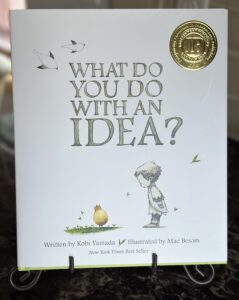 One of the most transformative tools I discovered during my time in a counseling office was the use of children’s picture books. These books, with their perfect blend of words and illustrations, had a remarkable ability to break down complex struggles and inspire personal growth. They offered a beacon of hope and a path to solutions.
One of the most transformative tools I discovered during my time in a counseling office was the use of children’s picture books. These books, with their perfect blend of words and illustrations, had a remarkable ability to break down complex struggles and inspire personal growth. They offered a beacon of hope and a path to solutions.
Among my favorites was “Minou” by Mindy Bingham. This poignant tale follows a pampered Siamese cat who, after her owner’s passing, finds herself without a home or survival skills. On the brink of despair, she is rescued by another cat who teaches her the essentials of survival. It’s a story that resonates with the joys, freedom, and confidence of self-sufficiency, and the value of friendship, evoking a deep emotional connection with the reader.
Another was The Giving Tree by Shel Silverstein. It tells the story of a tree that loved a little boy so much that during the boy’s life, she gave him her apples, branches, and eventually her trunk. She was down to being a stump and could only offer the boy something to rest against. It is a thoughtful story of imbalanced love, givers and takers, and the simplicity of authentic love. Most complexities in life are simple when we let go
of expectations. It’s a little like death—in the end, only the essentials occupy the mind. The tree had nothing more to give, and the boy used up all options for happiness.
Another favorite was “Oh, the Places You’ll Go!” by Dr. Seuss. It was hopeful and energetic and gave reasons why and how a person can be whoever and whatever they choose. We have the tools, the desires, and the smarts to make it happen. The rhyming words make you want to click your heels together and get going lickety-split.
I recently bought another excellent book, “What Do You Do With an Idea?” by Kobi Yamada. I saw it, quickly read it, and could not leave the store without it. It’s now on an easel on my kitchen counter. It is about a child with an idea. The child tries to eliminate the idea, but it doesn’t go away. He is afraid to tell anyone about the idea for fear of rejection or embarrassment. The idea grows and finally takes over the child’s world. The message is to honor ideas, not discount them—to support and let them live fully.
Thinking about something through the eyes of a child helps adults find solutions to grown-up issues.
There is a lot of truth in the saying, “Out of the mouth of babes.” If a child can learn from a picture book, so can we.
Until the next time: Live while you live.
Jennifer Goble, Ph.D., LPC, is the author of “My Clients…My Teachers,” and the blogger and writer of Rural Women Stories: www.ruralwomenstories.com.
Powered by WPeMatico